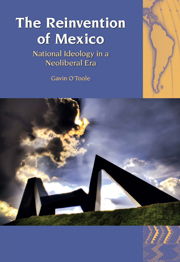1 - From Nation-Building to Crisis
from I - Nationalism and Liberalism
Summary
The Character of Mexican Nationalism: Nation-building and State-building
The discourse of Mexican nationalism has been of significant functional value to the state-building projects of liberal elites, offering a means of creating a unified citizenry from a divided and unequal society, nation-building. This doctrine evolved in a tense relationship with the economic liberalism espoused by those self-same elites, because of a structural characteristic of Mexican capitalist development: inequality.
A key question raised by the examination of nationalism in Mexico is to what extent national identity can be seen as a justificatory fiction constructed by elites in the pursuit of socio-political change; or as a causative agent in its own right that embodies the social and cultural realities propelling that change. An examination of Mexican history suggests that the relationship between nationalism and elite projects has been influenced by the former's value in providing the terms for the construction of a shared nationality in a heterogeneous and divided society. In this context, the state is of central importance in understanding the evolution and fate of nationalism in Mexico. The development of nationalist ideology commonly has been traced alongside the efforts of literate elites to consolidate an autonomous central political authority in circumstances of internal division and external threat, that is, as an adjunct to state-building; it has also been analysed as part of a modernizing or industrializing formula, as a mobilizing force, or as a unifying, integrating and hence legitimizing ideology.
- Type
- Chapter
- Information
- The Reinvention of MexicoNational Ideology in a Neoliberal Era, pp. 23 - 40Publisher: Liverpool University PressPrint publication year: 2010

